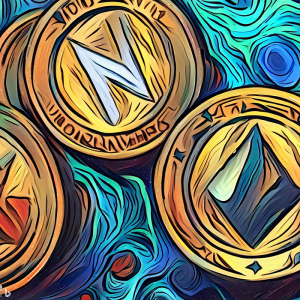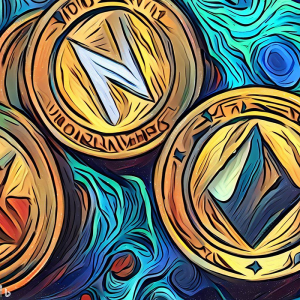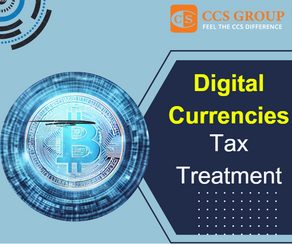Accountants often face challenges in their professional practice that lack specific accounting standards, such as in the case of cryptocurrencies.
Similarly, tax agents in Malaysia have limited resources when referencing the Guidelines on the Tax Treatment of Digital Currency Transactions, which appears to be the solely available guidance presently. As a result, the Chartered Tax Institute of Malaysia (CTIM) has sought clarification from the Inland Revenue Board of Malaysia regarding their comments dated 15 March 2023, to which the Inland Revenue Board of Malaysia (HASiL) has responded with their comments dated 17 May 2023.
Feedback from LHDNM:
1. Digital Currencies/Tokens vs Intangible Assets

Digital currencies are not recognised as legal tender or treated as such in Malaysia by Bank Negara Malaysia (BNM). For tax purposes, LHDNM categorises digital currencies as intangible assets.
This aligns with the Malaysian Financial Reporting Standards (MFRS) 138 (Intangible Asset) and MFRS 102 (Inventory), where digital currencies are considered intangible assets that can be identified even without physical substance.
Since Bank Negara Malaysia and the Royal Malaysian Customs Department are not under the control of LHDNM, the Chartered Tax Institute of Malaysia (CTIM) is welcome to provide further input regarding the treatment of digital currencies by both agencies, if applicable.
2. Transactions involving Non-Fungible Tokens (NFTs).

Non-Fungible Tokens (NFTs) are unique crypto assets that can be transferred or traded.
NFTs are also included in the digital currency ecosystem.
Therefore, any transactions involving NFTs similar to existing digital currency transactions fall under the Guideline on Tax Treatment of Digital Currency Transactions dated 26 August 2022, published by LHDNM.
These 14-page Technical Guidelines are added to the Guidelines on Taxation of Electronic Commerce Transactions, issued on 13 May 2019. These Technical Guidelines offer additional clarification and direction regarding the tax handling of digital currencies or digital tokens. They apply to individuals who acquire or dispose of digital currencies and those involved in digital currency-related activities such as trading, mining, and exchanging. For the purpose of the Technical Guidelines, “digital currencies” and “digital tokens” refer to digital financial assets that are based on Distributed Ledger Technology (DLT) and cryptographically secured digital representations of value or contractual rights that can be electronically transferred, stored or traded. Both terms are used interchangeably in the Technical Guidelines.
However, LHDNM will conduct a study if there are any changes related to transactions involving NFTs.
3. The determination of commencement of business operations for crypto traders and crypto miners

The tax treatment for determining the commencement of business operations for digital currency traders and digital currency miners is the same as for other businesses under the Income Tax Act 1967 (ITA).
Generally, the commencement of business refers to the start of activities conducted in operating a business or activities that are part of the income generation process.
Please refer to the relevant General Determinations issued by LHDNM, such as:
- General Determination No. 11/2013 – Pre-Operation Business Expenditure
- General Determination No. 8/2014 – Basis Period of a Company, Limited Liability Partnership, Trust Body, and Cooperative Society
- General Determination No. 4/2017 – Basis Period For A Business Source For Persons Other Than A Company, Limited Liability Partnership, Trust Body And Co-Operative Society
4. General tax treatment of acquisitions and disposals of digital currencies

In general, the taxability of digital currency transactions in Malaysia is based on Section 3 of the ITA 1967, where income of any person accruing in or derived from Malaysia or received in Malaysia from outside Malaysia is taxable.
IRBM regards the transactions involving digital currency to be subjected to Malaysian tax if the key activities and business operations are performed in Malaysia or if the business has a presence in Malaysia. Nevertheless, all the facts and circumstances would have to be considered in determining whether the source of the income is taxable in Malaysia.
Effective 1 January 2022, foreign-sourced income will be taxed when it is received in Malaysia

As Malaysia does not tax capital gain, only revenue gains arising from the disposal of digital currency are taxable.
A person who trades digital currencies actively may be viewed as generating revenue from the activity; thus, gains from this digital currency trading are taxable.
On the other hand, gains derived by individuals who trade occasionally may be viewed as capital gains and not taxable in Malaysia.
The gains/losses from the disposal of digital currencies or digital tokens assessed to be trading in nature would be taxable/deductible.
On the other hand, the disposal gains/losses of digital currencies or digital tokens that are capital in nature are not taxable/deductible.
5. Gains and Losses from Foreign Exchange

Guidelines on Tax Treatment of Digital Currency Transactions
The LHDNM acknowledges CTIM’s suggestion in Example 2 of the Guidelines as below:
The digital currencies received for the ticket price (in RM) are recognised as the sales value of Event League Company Sdn Bhd.
Referring to Example 2 above, let’s say at the time of purchase, the customers are given the option to make the purchase in the:
- RM,
- USD, or
- a particular digital currency.

The ticket price in RM is RM100, and the ticket prices in USD and digital currency are predetermined (i.e. does not vary daily).
Hence, for a ticket sold at a price denominated in digital currency, the amount billed may be received and converted into RM instantaneously. Yet, the value could differ from RM100, say RM105 or RM98. CTIM would like the LHDNM to confirm whether, in such cases, the RM105 or RM98 (as the case may be) is acceptable as sales value/gross income for tax purposes.
Feedback from LHDNM:

Based on the presented scenario and facts, the ticket price has already been set at RM100, and the ticket price in USD and digital currency has also been determined and remains unchanged.
If the appropriate value to be recorded for ticket sales is based on the RM100 value, any difference in the exchange rate would be considered a gain or loss from the exchange of digital currencies.
General Ruling No. 12/2019 – Tax Treatment Of Foreign Exchange Gains And Losses can be referred to for comparison regarding taxation on gains or losses from digital currency exchange.
6. Exchanges of digital currencies

The taxability of the gain or loss from the conversion of one digital currency to another digital currency will depend on whether the digital currency is a capital or revenue asset and, consequently, whether the gain or loss arising from the conversion is capital or revenue in nature.
CTIM would like to know if the relevant expenses incurred during conversion such as the fee, commission or other acquisition costs, are tax deductible if the digital currencies are revenue assets.
Feedback from LHDNM:
Any expenses/losses incurred from digital currency trading activities may be eligible for tax deductions if they meet the provisions of section 33 ACP and depend on the facts of each case.
References
1. Guideline on Tax Treatment of Digital Currency Transactions
2. Public Ruling No. 11/2013 – Pre-Operation Business Expenditure
3. Public Ruling No. 8/2014 – Basis Period of a Company, Limited Liability Partnership, Trust Body, and Cooperative Society
4. Public Ruling No. 4/2017 – Basis Period For A Business Source For Persons Other Than A Company, Limited Liability Partnership, Trust Body And Co-Operative Society
5. Public Ruling No. 12/2019 – Tax Treatment Of Foreign Exchange Gains And Losses






